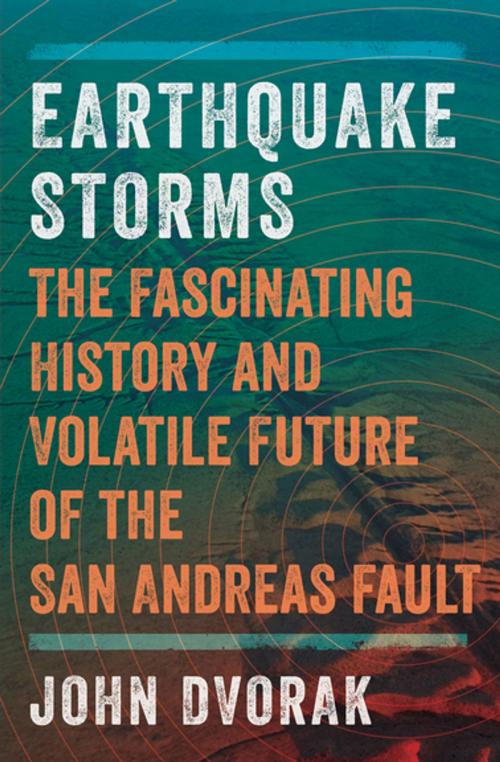Earthquake Storms
An Unauthorized Biography of the San Andreas Fault
Nonfiction, Science & Nature, Science, Earth Sciences, Geology, History, Americas, United States| Author: | John Dvorak | ISBN: | 9781480447868 |
| Publisher: | Pegasus Books | Publication: | February 4, 2014 |
| Imprint: | Pegasus Books | Language: | English |
| Author: | John Dvorak |
| ISBN: | 9781480447868 |
| Publisher: | Pegasus Books |
| Publication: | February 4, 2014 |
| Imprint: | Pegasus Books |
| Language: | English |
A geologist explores the fault line that threatens disaster for millions in this “must-read for earthquake buffs—and West Coast residents” (Library Journal).
It’s a geological structure that spans almost the entire length of California. Dozens of major highways and interstates cross it. Scores of housing developments have been built over it. And its name has become so familiar that it’s now synonymous with the very concept of an earthquake.
Yet, to many of those who are affected by it, the San Andreas Fault is practically invisible and shrouded in mystery. For decades, scientists have warned that the fault is primed for a colossal quake. According to geophysicist John Dvorak, such a sudden shift of the Earth’s crust is inevitable—and may be a geologic necessity.
In Earthquake Storms, Dvorak explains the science behind the San Andreas Fault, a transient, evolving system that’s key to our understanding of worldwide seismic activity. He traces it from the redwood forests to the east edge of the Salton Sea, through two of the largest urban areas of the country: San Francisco and Los Angeles. Its network of subsidiary faults runs through Hollywood, Beverly Hills, and Santa Monica, and the Hayward Fault slices the football stadium at the University of California in half. As he warns of peril, Dvorak lays out the worst-case scenario, which he believes is coming: an awakening of the fault leading to years of volatile “earthquake storms.”
Hailed by Booklist as “a fascinating look at what could be in store,” Dvorak’s comprehensive and accessible study will change the way you see the ground beneath your feet.
A geologist explores the fault line that threatens disaster for millions in this “must-read for earthquake buffs—and West Coast residents” (Library Journal).
It’s a geological structure that spans almost the entire length of California. Dozens of major highways and interstates cross it. Scores of housing developments have been built over it. And its name has become so familiar that it’s now synonymous with the very concept of an earthquake.
Yet, to many of those who are affected by it, the San Andreas Fault is practically invisible and shrouded in mystery. For decades, scientists have warned that the fault is primed for a colossal quake. According to geophysicist John Dvorak, such a sudden shift of the Earth’s crust is inevitable—and may be a geologic necessity.
In Earthquake Storms, Dvorak explains the science behind the San Andreas Fault, a transient, evolving system that’s key to our understanding of worldwide seismic activity. He traces it from the redwood forests to the east edge of the Salton Sea, through two of the largest urban areas of the country: San Francisco and Los Angeles. Its network of subsidiary faults runs through Hollywood, Beverly Hills, and Santa Monica, and the Hayward Fault slices the football stadium at the University of California in half. As he warns of peril, Dvorak lays out the worst-case scenario, which he believes is coming: an awakening of the fault leading to years of volatile “earthquake storms.”
Hailed by Booklist as “a fascinating look at what could be in store,” Dvorak’s comprehensive and accessible study will change the way you see the ground beneath your feet.















